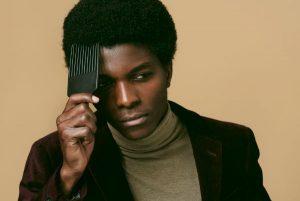Afro Hair Transplant

Afro Hair Transplant: Restore Hair Beauty
Hair loss is a major concern for many people, regardless of their hair type. However, individuals of African descent often face specific challenges when it comes to hair transplantation. Fortunately, Afro hair transplant offers a promising solution to restore hair beauty. In this article, we will explore key aspects of afro hair transplantation, including the techniques used, considerations specific to afro hair, and expected results.
Restore Hair Beauty, thanks to Afro hair transplantation
Understanding afro hair transplantation
Hair transplantation is a surgical procedure that involves the transplantation of hair follicles from a donor area to a recipient area. For people of African descent, Afro hair has distinct characteristics, including a curly or kinky texture and a pronounced curl. Afro hair transplantation therefore requires a specialized approach to obtain natural and aesthetically satisfying results.
Afro hair transplant techniques
There are different afro hair transplant techniques, the most common of which are DHI (Direct Hair Transplantation) and FUE (Follicular Unit Extraction). DHI consists of implanting the grafts previously extracted from the donor area, directly into the scalp using a tool called Choi Pen (“implantation pen”). FUE, for its part, involves the individual extraction of hair follicles from the donor area and their implantation after a micro incision. Each technique has its advantages and it is essential to consult a specialized surgeon to determine which one is best suited to each case. FUT, previously widely practiced, has been replaced by these two much more advanced techniques.
Considerations Specific to Afro Hair
Afro hair has particularities that must be taken into account during hair transplantation. The curvature of hair follicles, their angle of emergence and their structure can influence how grafts are implanted to achieve a natural result. Additionally, the density of afro hair may be different from other hair types, which may require precise planning to achieve a harmonious look and cover thinning areas.
Expected results and recovery
Afro hair transplant results vary from person to person, but overall, they offer an effective solution for restoring hair density. The transplanted hair gradually takes root and begins to grow naturally. It is important to note that afro hair requires specific care to maintain its optimal health and appearance after transplantation. A follow-up and post-operative care plan will be developed by the surgeon to maximize long-term results.
Select a surgeon specializing in Afro hair transplantation
When it comes to Afro hair transplantation, it is crucial to choose a surgeon who is specialized and experienced in this field . Hair transplantation is a complex procedure that requires specific expertise to achieve optimal results on afro hair. It is essential to look for a surgeon who understands the particularities of afro hair, has proven experience in this area and can provide examples of previous successes. A preliminary consultation with the surgeon will also discuss expectations and goals, as well as address any questions or concerns.
Preliminary assessment and planning
Before proceeding with afro hair transplantation, a thorough preliminary assessment is carried out to determine the feasibility of the procedure. The surgeon will examine the quality of the hair, the extent of hair loss and the density of the donor hair. Based on this information, a specific hair transplant plan will be developed to meet individual needs. Precise planning of graft implantation is essential to achieve a natural and harmonious appearance.
Preparation before Afro hair transplant
Before afro hair transplantation, it may be recommended to take certain measures to optimize the results. This may include using specific hair products to improve hair health, stopping certain medications that might interfere with healing, and adopting a balanced diet and healthy lifestyle to promote healthy hair growth. hair growth.
Recovery process
After afro hair transplantation, it is normal to feel slight discomfort, tenderness or swelling in the treated area. The surgeon will provide detailed instructions on post-operative care, including washing and maintaining the transplanted hair. It is important to follow these instructions exactly to promote rapid healing and minimize the risk of infection. The transplanted hair will begin to grow naturally after a few months, and the final results can be seen after several months to a year.

In conclusion, afro hair transplantation
Afro hair transplantation represents a significant advancement in the field of hair restoration for people of African descent. Thanks to specialized techniques and an understanding of the particularities of afro hair, it is possible to regain dense and natural hair. It is recommended to consult a surgeon specializing in afro hair transplantation to obtain a personalized assessment and optimal results. With this solution, self-confidence and hair beauty can be restored, providing a new perspective for those suffering from afro hair loss.

Dr. Baykal Oymak is a highly esteemed transplant specialist hailing from Turkey, boasting an impressive 17-year tenure in the medical field. His professional journey commenced as a dermatologist at Bogazici Hospital in Istanbul, where he began to hone his expertise. Since then, Dr. Oymak has conducted a remarkable tally of approximately 14,000 triumphant hair transplant procedures within Turkey. Additionally, he holds specialization in PRP treatment and Mesotherapy, further solidifying his reputation as a versatile and accomplished practitioner in the realm of dermatology and transplantation. » SCHEDULE YOUR HAIR TRANSPLANT IN TURKEY HERE «
